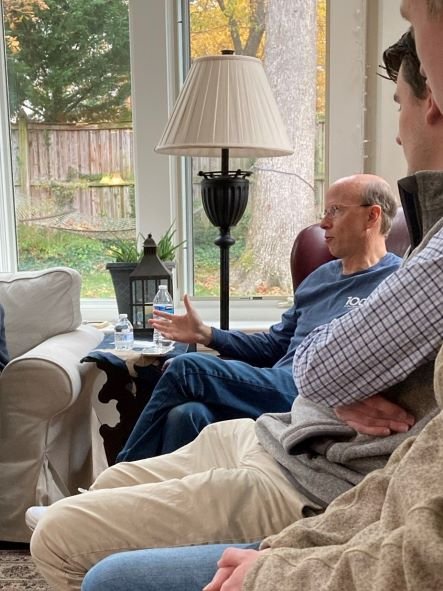Tom and Ann Bourke, US Navigators Staff
Mark 14:31 - “Peter insisted emphatically, ‘Even if I have to die with you, I will never disown you.’ And all the others said the same.” Good morning, Anne. I made it home very late last night. I’m bleary eyed, but glad to be here. Did you ever notice how Peter so often is used as an example of what not to do in books & sermons? Whether it’s an object lesson from his looking down at the water & sinking instead of keeping his focus on Jesus so that he could dance on the waves — or this whole thing with his denying Jesus after boasting he would never do such, or many other things. Here’s the thing: The others aren’t criticized because they don’t stick their necks out. Peter is the only one to say, “Can I walk on the water with You?” The other 11 guys were peeing their pants in the boat. He was the first to say he would never deny Jesus, but check out the last sentence in that verse above… they ALL said that & they all DID deny Him. In fact, Peter stayed dangerously close, where he gave into the temptation to lie about knowing Jesus. The others didn’t do that because they were miles away & still running in the other direction! The best part? Jesus chose Peter to lead. I think He liked Peter’s initiative, even though early on it was often impulsive & misguided. Jesus knew He could refine that in Peter. What part of you & me seems raw & wrong sometimes — but may actually be unrefined giftedness, Anne? Father, help us bring who we are & allow You to refine & use us. We don’t need to eliminate risk of failure or pretend to be someone other than who You made us to be.
Thanks, Tom




